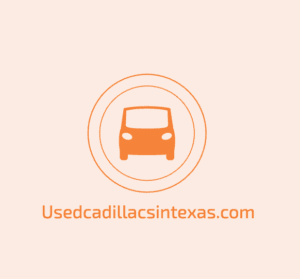Knowing how to choose a domain name for your business is one of the most important skills for any founder, marketer, or brand strategist. Your domain is not just a web address — it is your digital storefront, your email identity, and often the first thing a potential customer encounters. This guide outlines six essential guidelines for selecting a domain that works: keep it short, ensure easy spelling and pronunciation, incorporate relevant keywords for SEO and clarity, avoid confusing or inappropriate letter combinations, verify the name is not trademarked, and secure multiple extensions to protect your brand. With real-world examples from Google, Apple, and Amazon, this article provides a practical framework for making one of the most consequential decisions in building your online presence.
Open the dictionary and pick a word – the .com of that word will almost certainly be gone. So, where do you begin when choosing a domain name that will help your business grow? NameExperts.com Director Joe Uddeme walks you through the whole process.
One of the most important decisions you’ll make about your business is the domain name you choose to acquire.
The domain name you give your business is crucial because it becomes your identity on the web. You want it to reflect your brand and fit your business, but you also need it to be easy to find and promote.
Acquiring a premium domain name is definitely the way to go, but choosing one can be difficult. What criteria should you be following to make sure you end up with the very best when you buy a domain name?
This post is a little different to the others on the NameExperts blog – it’s a list of six key pointers to consider when choosing a domain name.
1. Pick a Short Name When You Choose a Domain
What You Want to Avoid: When you’re just starting out playing with domain names to choose it can be tempting to combine all your ideas into one long domain name – like UsedCadillacsInTexas.com. However, while that may make it unique and descriptive, it may hurt your branding.
What to Do Instead: A short name is easy to remember, easier to spell, and thus, has a better chance of becoming a household name. It also makes it easier when you want to branch out into branded items, or you want to create a logo, etc.
Unfortunately, all the very easy 3-letter names were all taken as early as 1997, but there are plenty of others available that are appropriate.
The shorter your domain name is, the easier it is to share through word of mouth. It’s also easier to type into your search bar, especially if you’re using a phone.
2. Pick Something Easy to Spell, Pronounce, and Remember
What You Want to Avoid: A name that is difficult to spell can negatively impact your traffic because it can mean that users don’t land on your page. They might even end up with a competitor instead. You’ll also want to avoid using multiple spellings and the use of hyphens, numbers, or special characters.
Your customers will often misunderstand numbers or misplace hyphens. People who hear your web address might not know whether you’re using a numeral or if it’s spelled out.
What to Do Instead: This name needs to be easy to remember. Your customers need to be able to spell it correctly and pronounce it easily, so that they can easily share it with others (check out our guide to choosing a strong brand name for your business).
Imagine you’re naming a child – you want something unique for your site, but you also don’t want a name that will create difficulties because of spelling or pronunciation. Every ‘Steve’ whose parents opted for ‘Steeyve’ or ‘Stëeve’ will tell you that being ‘clever’ with a name rarely works.
If you absolutely need to include special characters or terms that are more difficult to spell in your domain name, make sure you register different variations of it to be safe.
Some of the most famous and brandable names out there are extremely simple: Google. Facebook. Amazon. Apple. These are giants who created an excellent product or service, but who also knew how to brand themselves by acquiring premium domain names.

3. Use Relevant Keywords
What You Want to Avoid: A word of caution here – if your domain is entirely made up of keywords, you run the risk of creating a brand that sounds too generic or unrecognizable. Especially if you’re starting a blog or a personal page, you need something with a bit of personality.
What to Do Instead: You’ll notice that a lot of the heavy players have names that are composed of two words, and one of them is usually a keyword. That is a very clever choice, because a) it’s descriptive of your business, b) it majorly contributes to SEO, and c) it makes your name easy to remember.
So, if you’ve got an interior design business, for example, you’ll want a premium domain that ideally includes a relevant keyword, like “design”, “interior”, “decorator”, “home”, “style”, etc.
That will tell your potential customers all they need to know about your business. Your name is also likely to pop up in whatever Google search they try for “interior design” or similar keywords.
If your business is local, you might consider including your city or state in your domain. That way, customers in your area can find your name and remember it easier. Often, when doing keyword research for your business, you’ll find that city and state will most likely be included.
4. Avoid Anything Confusing or Inappropriate
What You Want to Avoid: You want to pay attention to not pick a name that is confusing (either because of spelling or sheer peculiarity), awkward, or inappropriate. If the initials of your business make up an inappropriate word, scrap the name immediately.
What to Do Instead: Pay attention to what a domain looks like when you spell it out, if it’s made of multiple words. You’ll be surprised at how many other words you may inadvertently spell. Example: your name is Marc and you’re a rapper. www.marcraps.com isn’t great, is it?
The other thing to look out for is picking a name that has no relation to your line of business. That can be very confusing.
5. Avoid Names that Already Exist or Are Trademarked
What You Want to Avoid: Don’t go ahead with a name that is extremely similar to an existing one or that is trademarked, because a) that is confusing for your customers and you risk losing traffic, and b) you may, someday, be served with a legal notice that may create problems.
What to Do Instead: However, there is a caveat here.
If the name is already trademark-protected, that’s a bit of a dead-end. There can’t be another Burger King, for example.
If, however, the domain name you want is just taken by someone else, there are ways around that, and you are still able to buy a domain name that is already owned.

6. Choose a .com TLD, but Purchase All Available Extensions
What You Want to Avoid: If you only acquire the domain name you want and no other similar ones, you run the risk of having someone else purchase other variations of your domain. They will get the traffic that should have been directed towards your page.
What to Do Instead: The most popular domains are .com ones and they are the most widely used, so it’s the ideal premium domain to acquire. But your work doesn’t stop here. Once you’ve bought that, you also want to purchase every other available variation of your domain name.
For example, let’s say your domain name is www.carsforsale.com. You should try to buy www.carsforsale.net, www.carsforsale.org, www.carsforsale.biz, etc. That way, no one else can take these domains and possibly steal traffic that was meant to go your way.
Once you have these domains, you can make sure the traffic redirects to your main .com domain. Check out our guide to TLDs (top level domains).
The Bottom Line When Deciding How to Choose a Domain Name
Choosing a domain name can be a delicate process. Pick the wrong one, and your business may suffer. Pick the right one, and it can catapult you into quick notoriety, or at least it can help make branding easier.
The most important things to remember when choosing what domain to acquire is that it should be something easy to spell and remember, it should be non-trademarked, and it should ideally include a keyword.
If you manage to find the perfect one, purchase every variation to make sure that you can take advantage of 100% of the traffic going to these domains. Buying premium domain names for a business can be pretty complex, which is why many people turn to an expert domain broker for help.
Brokers know all the ins and outs of securing a great name and are adept at negotiating the best price for the buyer. Check out our guide to the best domain brokers of 2025 for more details.
About the author
Joe Uddeme is Director and Principal of Name Experts, one of the world’s leading domain name brokerage services. He has overseen domain name sales and acquisitions totaling more than $150 million and is renowned worldwide as a go-to expert in buying and selling premium domains. Contact us at: [email protected]
Subscribe for More Domain Buying & Selling Advice
Need Help Choosing or Acquiring the Perfect Domain?
Name Experts has facilitated over $150 million in domain transactions and helped hundreds of businesses secure their ideal .com. Whether you need domain strategy advice or a broker to acquire a taken domain, we are here to help. No upfront fees.
Get Expert Domain AdviceFrequently Asked Questions
To choose a domain name for your business, follow six core guidelines: keep it short and concise, ensure it is easy to spell and pronounce, incorporate a relevant keyword when possible, check for unintended word combinations, verify it is not trademarked, and secure multiple domain extensions. The .com extension remains the gold standard for credibility and trust. If your ideal .com is already taken, consider working with a domain broker to acquire it rather than settling for a weaker alternative.
Short domain names are easier to remember, faster to type, less prone to spelling errors, and more effective in offline marketing like radio ads, business cards, and word-of-mouth referrals. Research shows that the most valuable domains in the world are almost universally under 10 characters. Every additional character increases the chance of user error and decreases the likelihood that someone will recall your domain from memory.
Including a relevant keyword in your domain name can provide a modest SEO signal and, more importantly, immediately communicates your business focus to both users and search engines. For example, a domain like PremiumDomains.com instantly signals the site's purpose. However, keyword domains should still sound natural and brandable -- stuffing multiple keywords into a domain (e.g., BestCheapDomainNamesOnline.com) hurts credibility and memorability. Balance keyword relevance with brand quality.
Yes, securing multiple extensions (.com, .net, .org, .biz, and relevant country-code TLDs) is a smart brand protection strategy. It prevents competitors from registering similar domains that could confuse your customers or divert your traffic. It also blocks potential cybersquatters. At minimum, every business should own the .com version of their brand name, plus the .net and .org variants. The cost of registering additional extensions is minimal compared to the brand protection they provide.
The most common domain name mistakes include: choosing names that are too long or difficult to spell, using hyphens or numbers that confuse users, selecting trendy extensions (.io, .xyz) when the .com is available, ignoring trademark conflicts that could lead to legal disputes, and failing to test how the name looks when all lowercase letters run together. One infamous example is "Pen Island" becoming penisland.com -- always evaluate your domain as a continuous string of characters.
In most cases, yes. A premium .com domain that perfectly matches your brand is one of the highest-ROI investments a business can make. It enhances credibility, simplifies marketing, improves SEO, and makes every customer touchpoint more professional. The cost of acquiring a premium domain -- even at five or six figures -- is often a fraction of what companies spend on advertising to overcome the disadvantage of a weak domain. A domain broker can help you assess fair market value and negotiate the acquisition.



